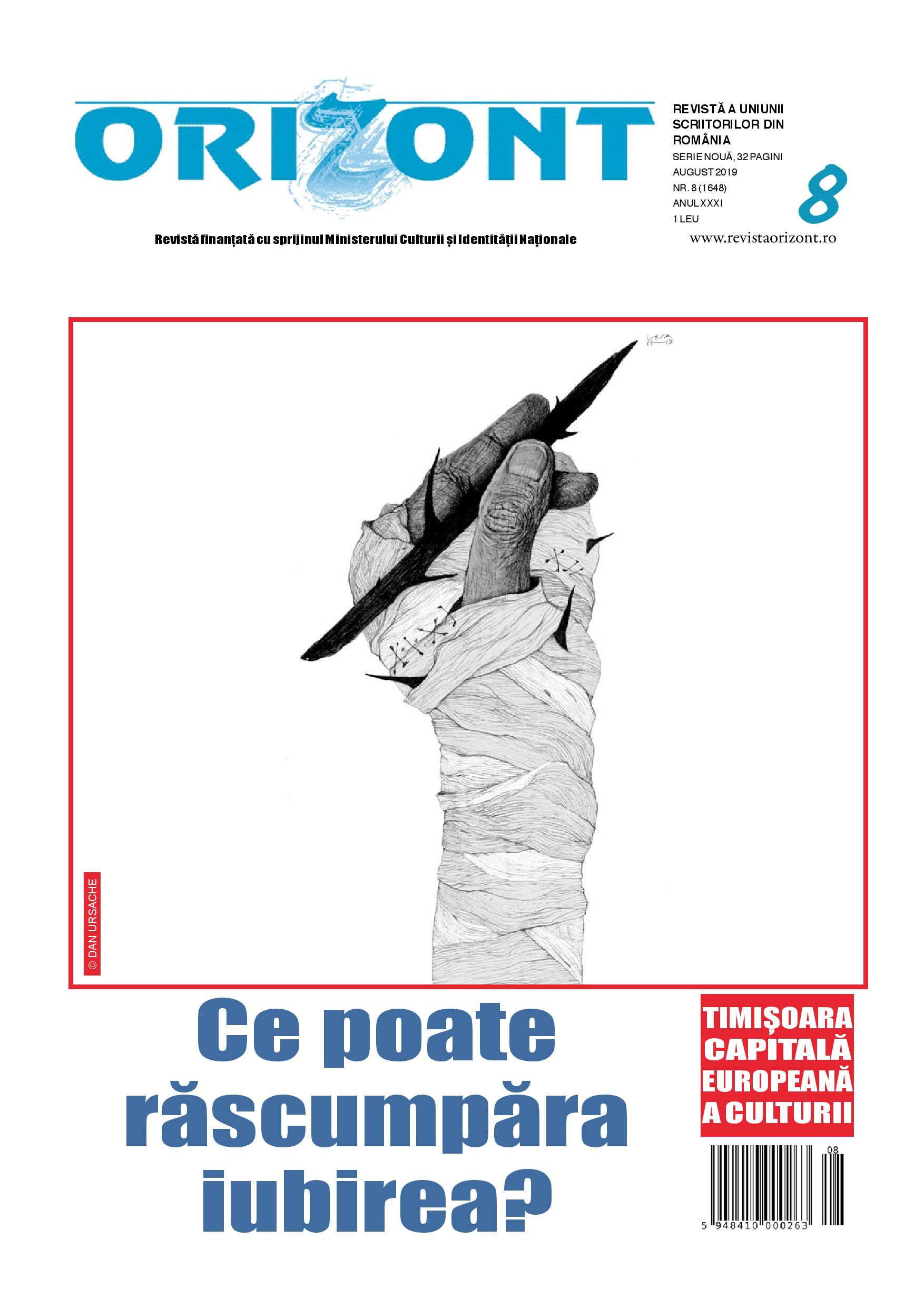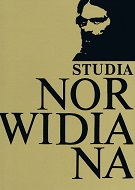

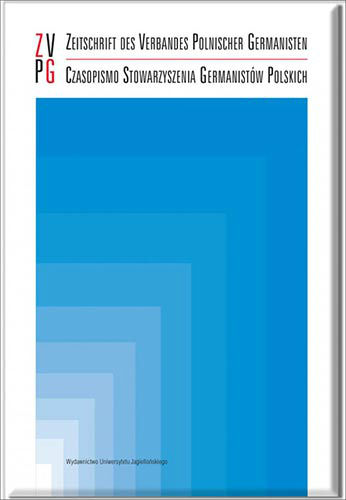
Keywords: Modernism; culture studies; Scandinavian poetry; intertextuality
The paper deals with the poetological propositions of one of the major Scandinavian Modernist poets Gunnar Ekelöf. My argument is that Ekelöf was one of those Modernist writers who saw literature from the perspective of a Weltkultur. I’m framing my reading of his intertextual collages, especially A Mölna-elegy in that context. The question of literary predecessors, tradition, dialogue and cultural ancestry becomes extremely important in Ekelöfs poetological propositions. His “ultramodernist” techiques as the use of a wide range of intertextual strategies or cultural recycling, are expressions of a cultural nostalgia rather than a proclamation of an aesthetic revolution. The perspective of a global culture that transgresses the borders of time and space directs the Swedish poet to the conception of poetry as a kind of culture science.
More...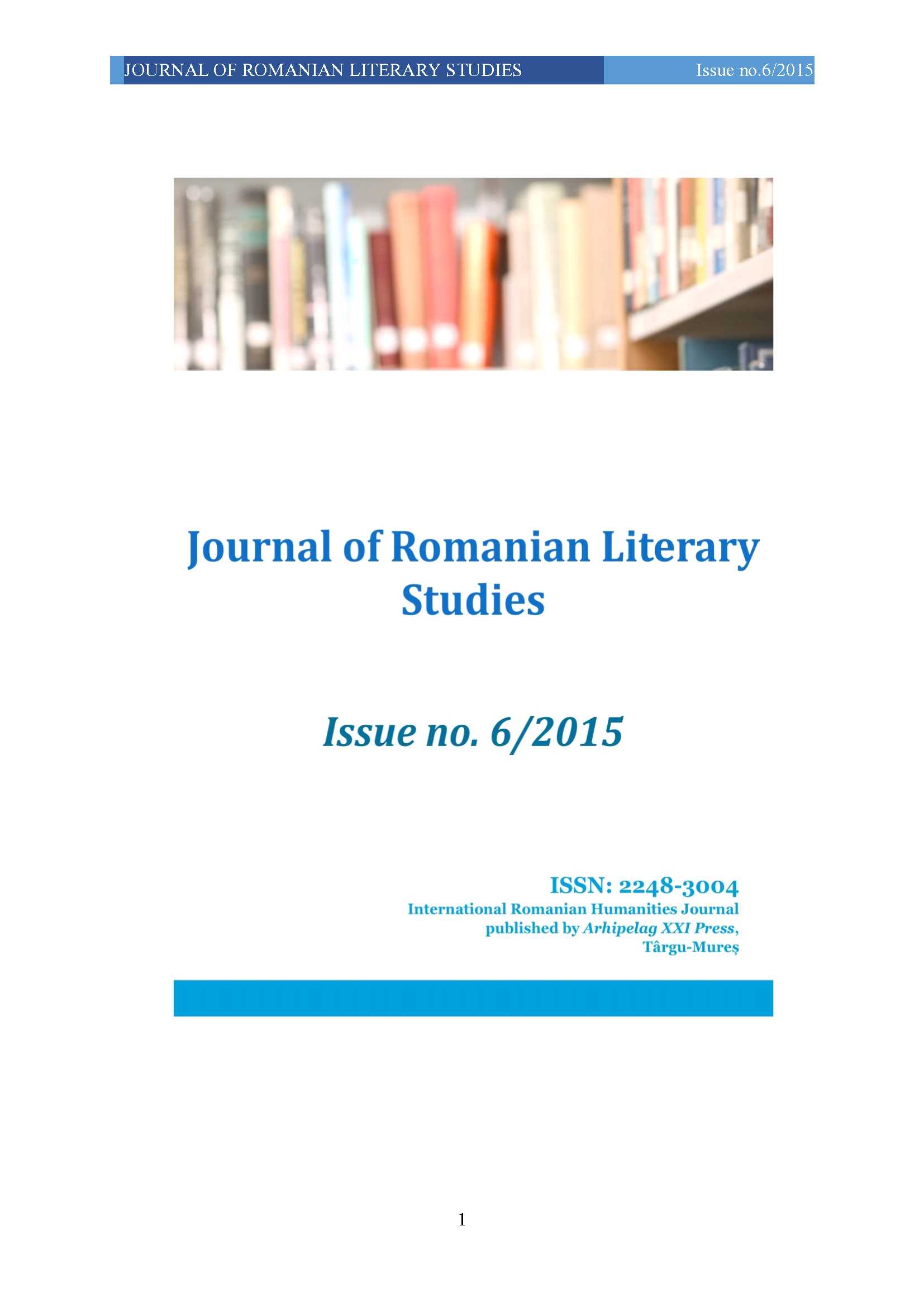
Keywords: poetic prose; Christian imaginary; personal and collective memory
The articles analyses La Pleurante des rues de Prague by Sylvie Germain by taking into account the use of a famous topos in Christian culture, mater dolorosa. This example of poetic prose describes the twelve appearances of a fabulous female character dwelling in Prague. Immaterial, but visible, huge, with a limping left foot, the heroine bears the suffering of the whole humanity and tries to console it. As the eternal Mother of human sorrow, she suggests and at the same time surpasses Virgin Mary through the concept of personal and collective memory. In this text, the duty people do by commemorating the victims of History and the anonymous people who remain disconsolate blends with the heroine’s vocation for being the intercessor between two worlds which do not communicate much: God’s world and people’s world.
More...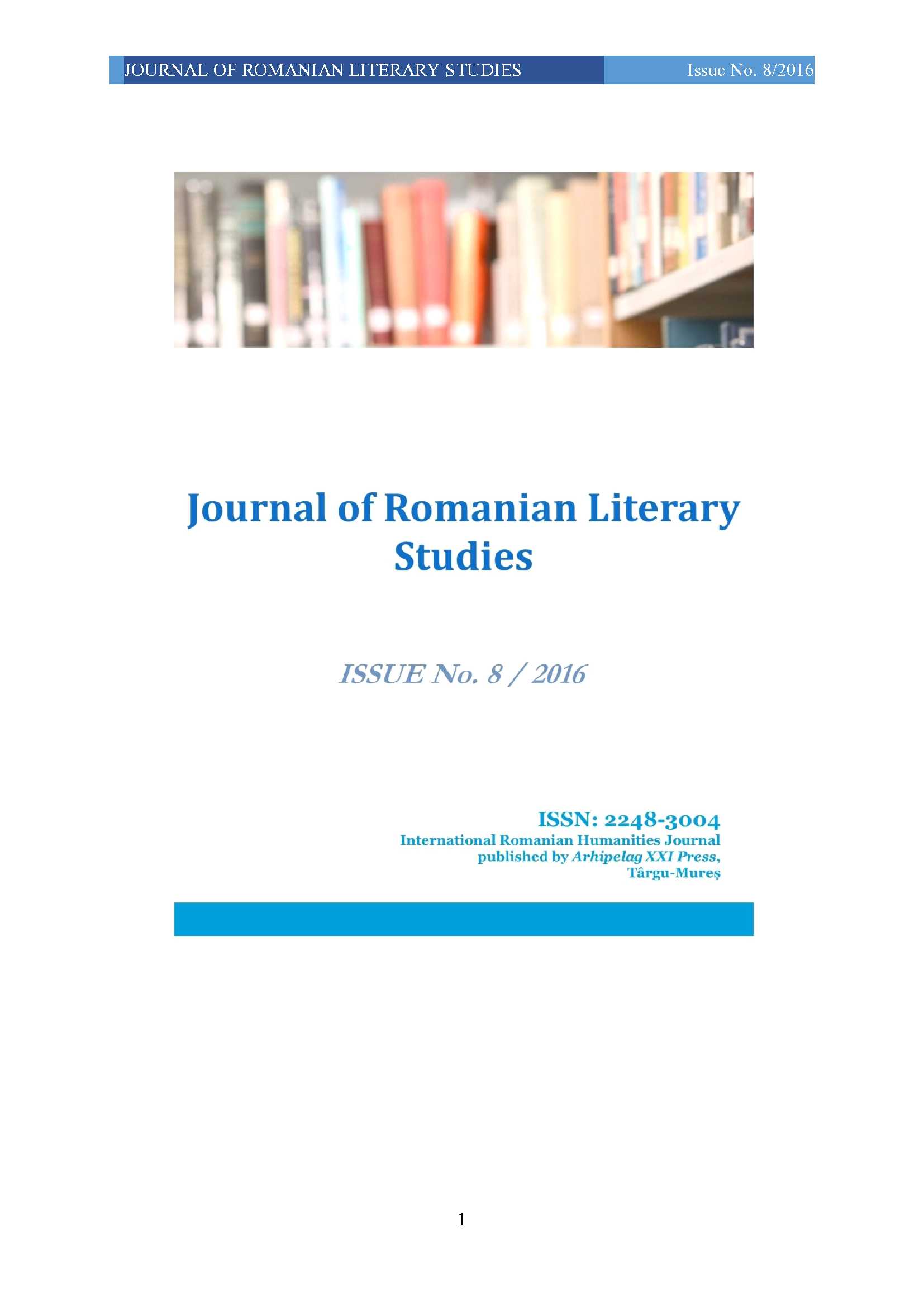
Keywords: play; character; social attitudes; comic; satire
Beaumarchaisřs Figaro plays are Le Barbier de Séville, Le Mariage de Figaro, and La Mère coupable. Figaro and Count Almaviva, the two characters Beaumarchais most likely conceived in his travels in Spain, were (with Rosine, later the Countess Almaviva) the only ones present in all three plays. They are indicative of the change in social attitudes before, during, and after the French Revolution.
More...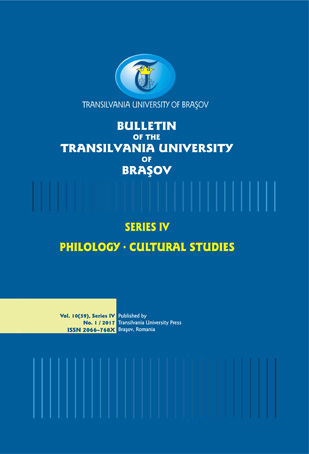
Keywords: synchrony; diachrony, literature; poetry; simultaneity; succession; contiguity
In the theory of arts, the two dimensions emphasized as essential by Saussure’s linguistics, synchrony and diachrony, can be paired with a correlative. In Lessing’s famous essay Laocoon, the arts are classified as arts of temporality and arts of spatiality. Thus, literature, as an art of the words’ succession in time, both from the point of view of the creation process, and from that of decoding (as words cannot be perceived all at once!...) cannot be an art of contiguity. However, literature has tried to meet its limits: ut pictura poesis, Horatio’s imperative, the simultaneity in poetry at the beginning of the 20th century, the technique of the interior monologue are just of the most known examples. The nostalgia of synchrony in an art belonging par excellence to diachrony expresses not only the millenary aspiration of literature to surpass its own limits but also its desire, equally ancient, expressed in any of the other arts, to beat temporality and to go beyond time in order to state a permanent and substantial presence of the being or of the self.
More...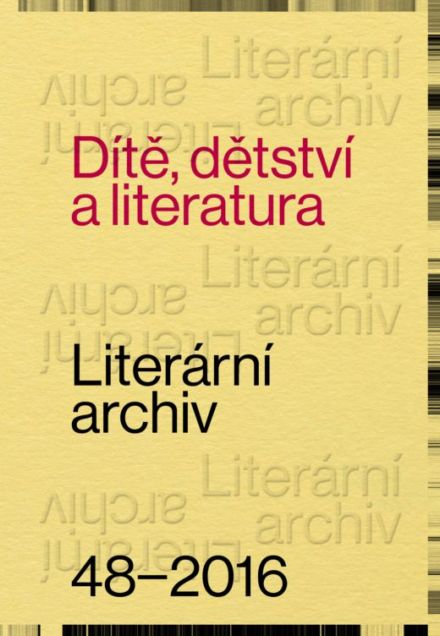
Keywords: Literature for children and young adults; publishers; e-books
In this article the author discusses the current state of the publishing of children’s books in the Czech Republic, which has resulted from the intersection of several remarkable trends: an inclination to the ‘all-age book’ (the book as a fine-art artefact with no clear target age group); the emphasis on the artistic and interactive conception of the book; and a tendency to intermediality. The author discusses the most important Czech proponents of such books, particularly Petr Nikl, and small publishers in the Czech Republic, like Meander and Baobab, in comparison with the huge Albatros Media publishing concern. He also comments on Czech e-books for children and the roots of Czech publishers’ rather conservative approach to this form.
More...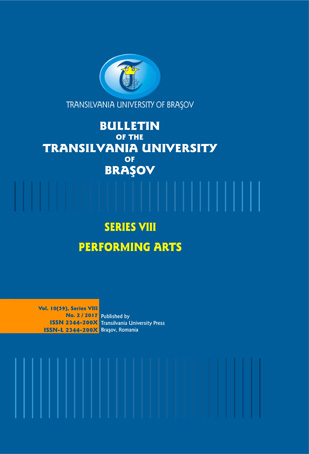
Keywords: des faisceaux sonores; isson; la spatialisation de la musique
La technique des faisceaux sonores se compose de sons tenus ou droits, similaires à la musique byzantine, aux pédales harmoniques de la musique classique ou aux longs sons de la musique électronique. A l’origine de cette technique se trouvent les partitions orchestrales de Luigi Nono et la peinture abstraite, avec des lignes et des rectangles, de Piet Mondrian. Nous parlerons de ces éléments et nous analyserons L’Élégie pontique (1968) pour basse baryton, choeur de femmes, flûte, clarinette basse, basson, contrebasson, cor, trombone, 6 altos, 6 violoncelles, 6 contrebasses, avec des verses dans la langue latine, tirés de la Troisième Élégie (Tristia) d’Ovidiu. Nous allons nous référer aux paramètres : timbre, hauteur et intensité, en faisant un parallélisme avec la peinture abstraite, parce qu’ici intervient aussi l’aspect visuel, les faisceaux apparaissant dans la partition comme des lignes graphiques.
More...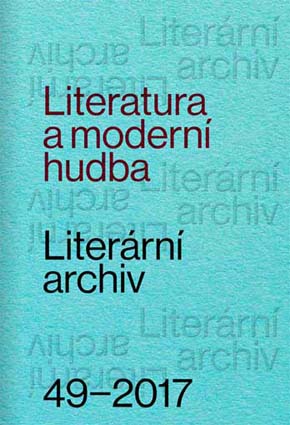
Keywords: Josef Kainar;melodrama;Melodram do školy (Melodrama to School); Petr Ježil;Josef Marek; Jiří Matys; Jan Schneeweis; Jitka Snížková; Antonín Vaigl; Zdeněk Zahradník
Josef Kainar’s verse draws on a seemingly bottomless source of subject matter, contemplation, poetic imagination, and also inspiration for further artistic interpretation. A number of composers have set his poems to music, not only as songs, but also as melodramas. A form of composition representing a synthesis of music and spoken word, melodrama has enjoyed a long tradition in Czech music: as early as in the eighteenth century, for example, melodramas were composed by Jiří Antonín Benda (1722–1795). Melodramas were composed as adaptations of verse and prose works by great writers from all over the world, including Czechs. In the twentieth and twenty-_rst centuries, composers have also found inspiration in the verse of Josef Kainar (1917–1971). Among them are, for example, Jiří Matys (1927–2016), Jan Schneeweis (1904–1995), Jitka Snížková (1924–1989), Josef Marek (b. 1948), and Antonín Vaigl (b. 1932). Thanks to the project ‘Melodram do školy’ (Melodrama for School), initiated in 2015 in the Music Education Department of the Faculty of Education at Jan Evangelista Purkyně University, in Ústí nad Labem, a number of melodramas based on Kainar’s collection of verse entitled Nevídáno, neslýcháno (Unimaginable, unheard of) were written, especially in that first year, by Zdeněk Zahradník and Petr Ježil. Melodramas made using Kainar’s verse have been well received by both adult and child performers and audiences.
More...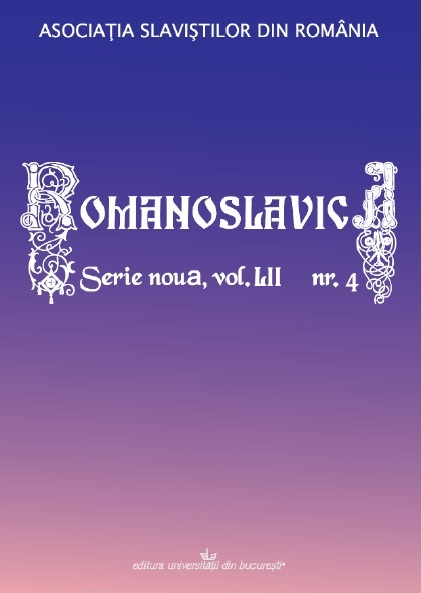
Keywords: Mattias Andersson; Backa Teater Gothenburg; Crime and Punishment; playwriting; performance arts
The present paper aims to indentify and analyze the elements of spatiotemporal re-contextualization in the play ”Crime and punishment” (”Brott och straff”) by Mattias Andersson, which premiered in 2007 at Backa Teater Gothenburg. The performance was a part of the big project ”Crime and punishment” wherewith Backa Teater inaugurated on 20th October 2007 its new headquarters in Norra Älvstranden, a harbor area of Gothenburg. The research work for this dramatization was performed during a study visit in Moscow and in Gothenburg, with reference groups consisting of young people with various backgrounds. After a thorough study of the play and the performance we remark to categories of elements of spatiotemporal re-contextualization: settings and props with contemporary global character which place the action today anywhere in the world – such as mobile phones, digital cameras, TV set, drugs – and specific elements inspired by the documentation visit in Moscow – the most important of them is a costume element: the cheap windbreaker jacket which the many and poor (including Raskolnikov) wear. Mattias Andersson uses in this performance, once again, the Brechtian concept of the estrangement effect.
More...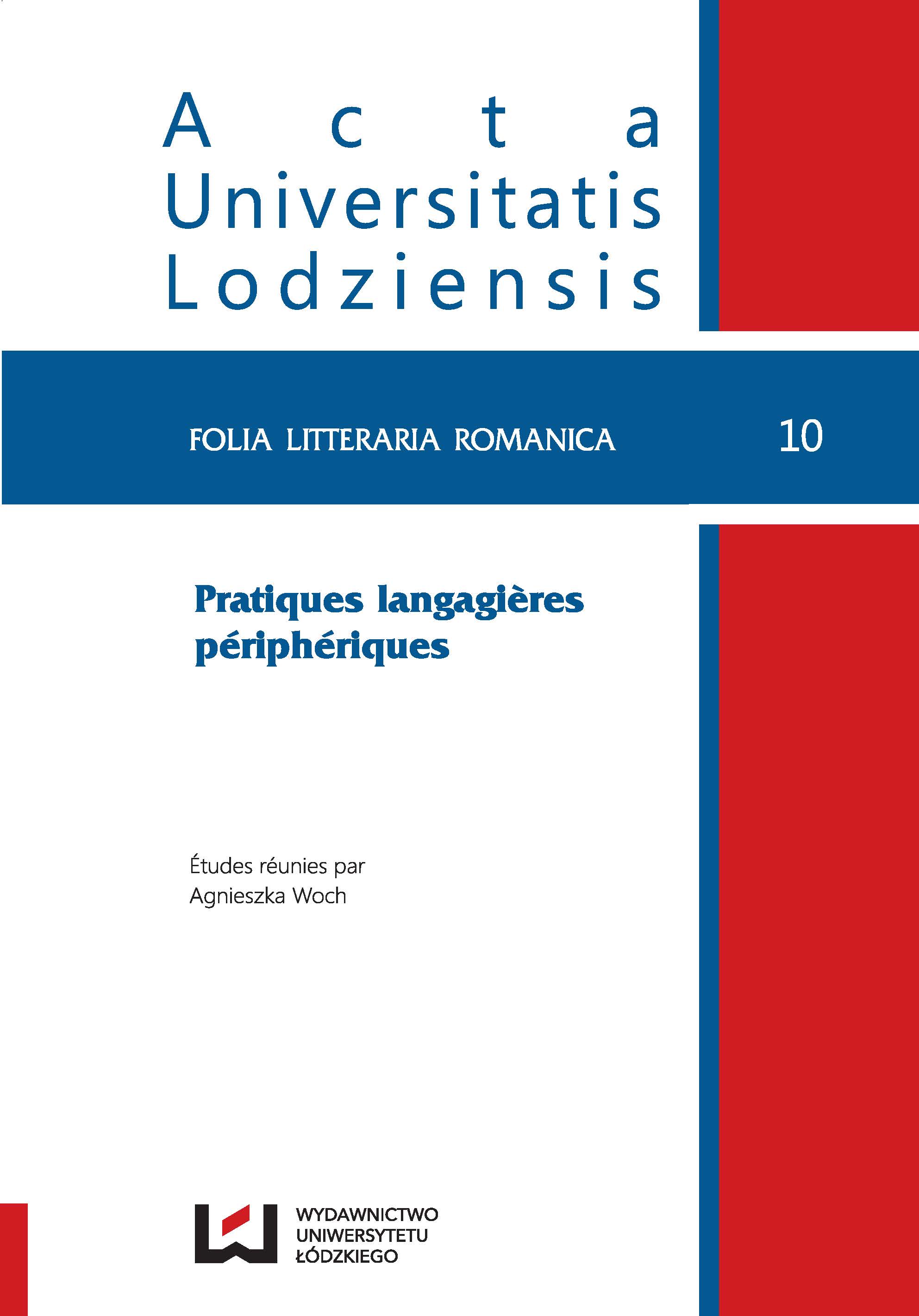
Keywords: suburban slang; immigration; individual style of the playwright; stylistic function
The suburban slang is characterized by usage of code words and words borrowed from various linguistic communities, generation of new meanings for existing words. It is increasingly used in the contemporary drama, becomes an essential component of individual style of the playwright: slang items acquire metaphorical senses, contribute to the rhythmic organization of the theatre play.
More...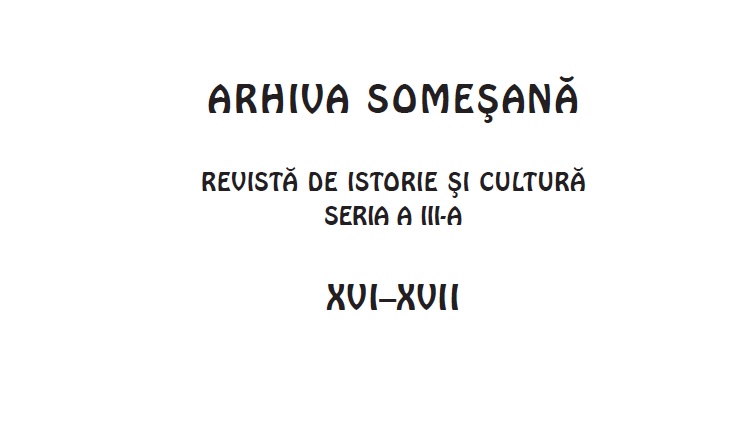
Keywords: Octavian RUleanu; Nae Antonescu, correspondence; Năsăud;
The paper presents several letters sent by Professor Octavian Ruleanu to his friend,Professor Nae Antonescu. Among other things, the letters also contain interesting informationabout the „Arhiva Someşană” magazine or the cultural life in Bistriţa Năsăud.The letters belong to the Nae Antonescu Fund. Correspondence (number 6970/files I-VI) ofthe „Lucian Blaga” Central University Library of Cluj-Napoca.
More...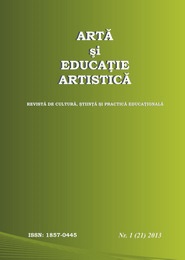
Keywords: hermeneutic; music; Paul Ricoeur; understanding; explanation; mass;
In the complex process of the listening to the music, the peculiar manner of each subject to enact a reflexive and affective interpretation of a unique cultural experience gets a great significance. A hermeneutic, on the philosophical ground, facilitates the endeavour to think about and to catch in memory part of the essence of music, beyond the emotion during a performance given us. Coming from the hermeneutical phenomenology of Paul Ri¬coeur, we do access a central thesis of the French philosopher, regarding the ,,comprehension and explanation” face to a ‘text’ - a cultural objectifying, a unity of signs carrying significances. We try to highlight the hermeneutic valences in a philosophical horizon of the mentioned dyad, by considering an artistic-musical ‘text’: the mass, using as example „Gloria (carnavalito — yaravi)” - part of Missa Criolla by Ariel Ramirez. We aim to challenge the reader toward an experience of (self-) knowledge and understanding, by activating the status of subject-receiver of music, and finally to revealing in the own potential of a hermeneut with a clear awareness of the human life; by priority, through the communion of human being and the divine.
More...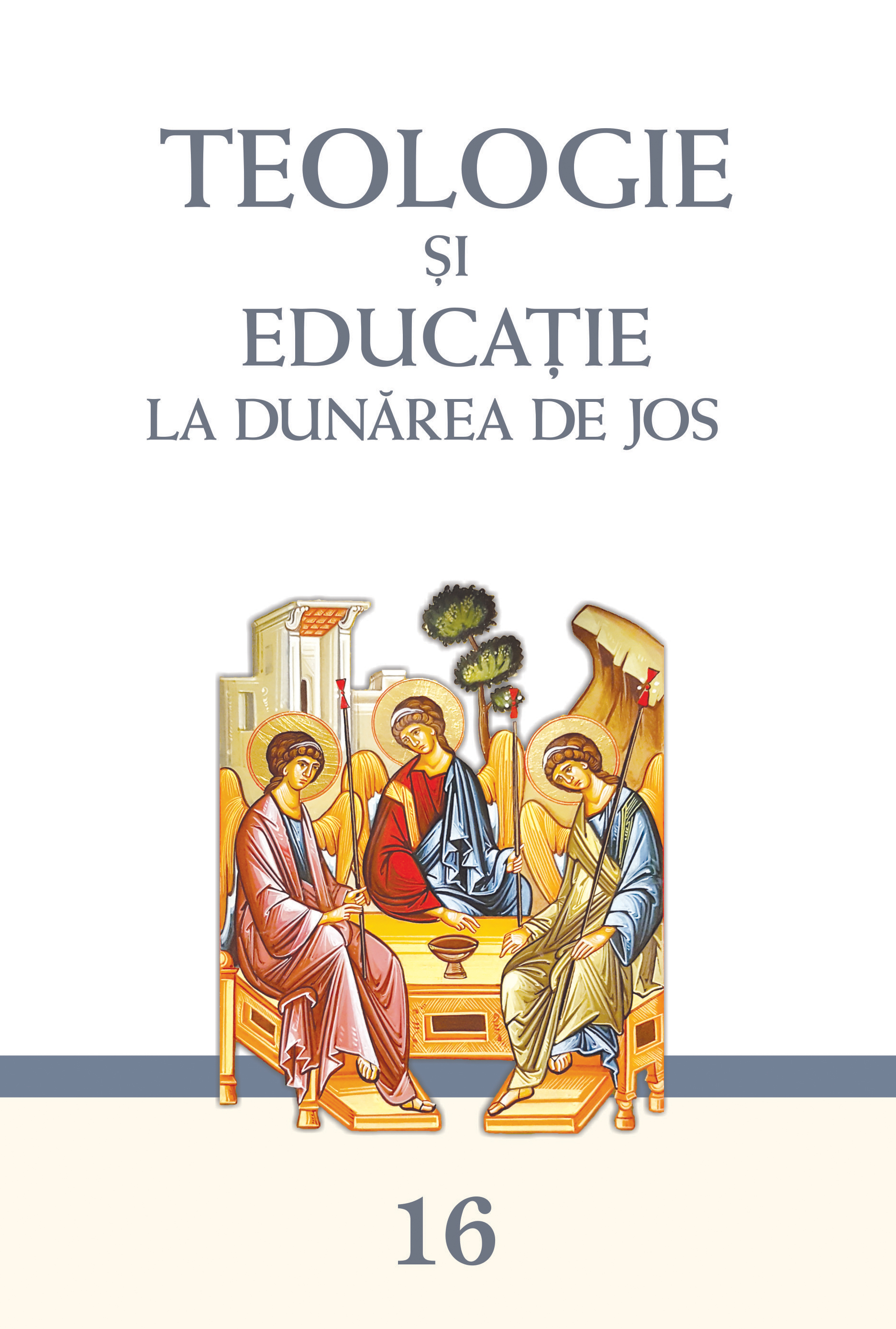
Keywords: Galeriu Constantin; communism; witnesses; Security; CNSAS archives;
Priest Constantin Galeriu is one of the emblematic personalities of the Romanian Orthodoxy of the 20th century. There are a number of files in the CNSAS archives that shed light on his dramatic events. His portrait, made through documents written by his own hand or the sources who wrote about him, is an authentic one. An exceptional theologian, according to his belief that had a tremendous influence on the destiny of an entire generation.
More...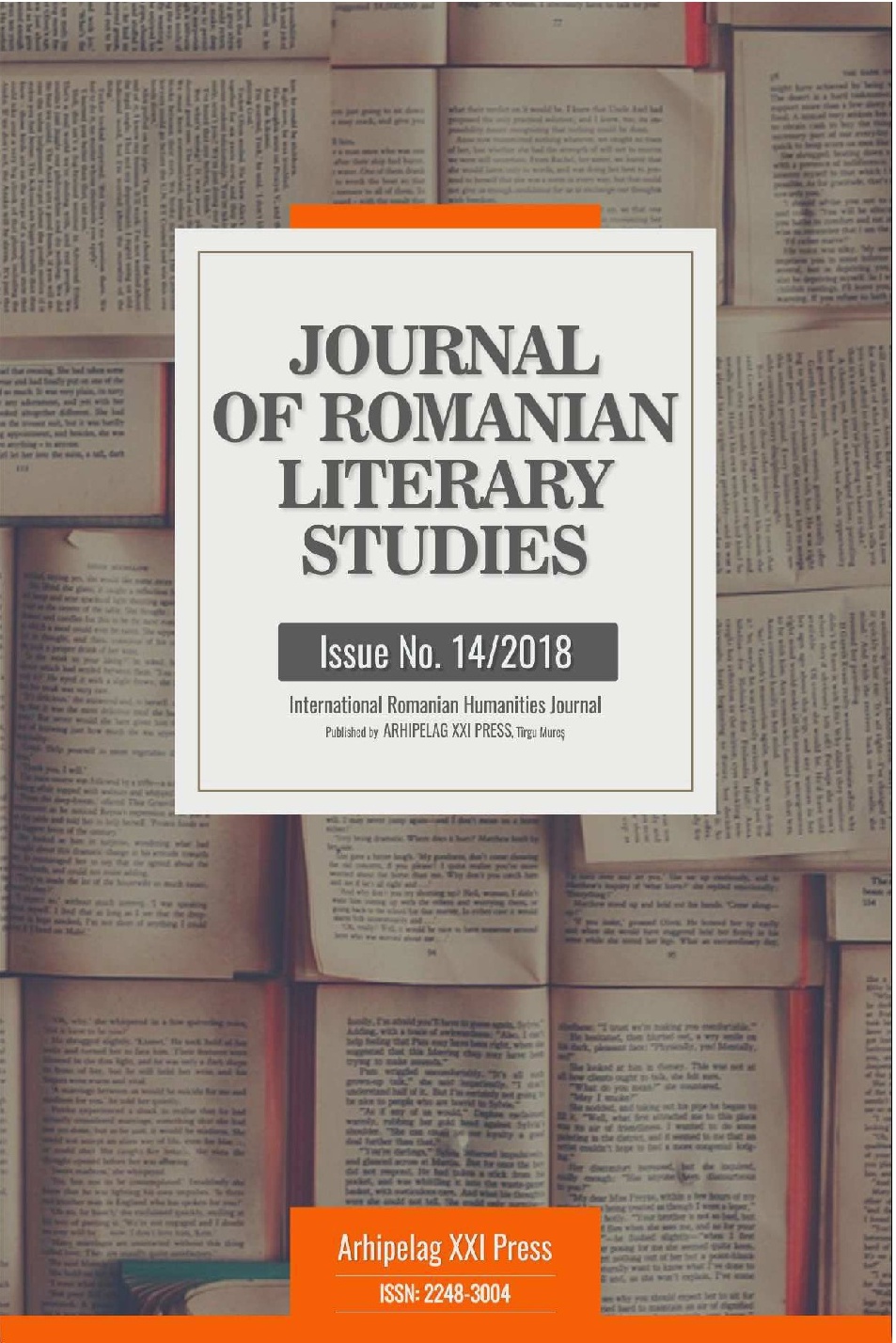
Keywords: travelling concepts; Existentialism; ”resigned historicism”; ”soteria”; Mircea Vulcănescu; Mircea Eliade;
The “young generations” spread across Europe in the 1900-1930s were not only groups who shared a common intellectual platform, but also crucibles to build up new ideas and launch them into the public space. Such was the case of the Romanian “young generation”, educated under the formative influence of the University teacher Nae Ionescu. While a general horizon of significance was accepted by most of the group members, there was room for personal innovation too. This article shows how a travelling concept – to use the phrase coined by Mieke Bal (2002) – gained new dimensions in the writings of two coevals and friends, Mircea Vulcănescu and Mircea Eliade. While the former devised the term “resigned historicism” in the field of generational sociology, the latter enlarged upon it and provided it with a mystical / religious counterpart, “soteria”. Thus, a friendly dialogue mushroomed into several non-fictional and fictional fragments, resulting in the development of two twin and complementing concepts, that may be looked upon as a Romanian contribution to the interwar pan-European Existentialist vocabulary.
More...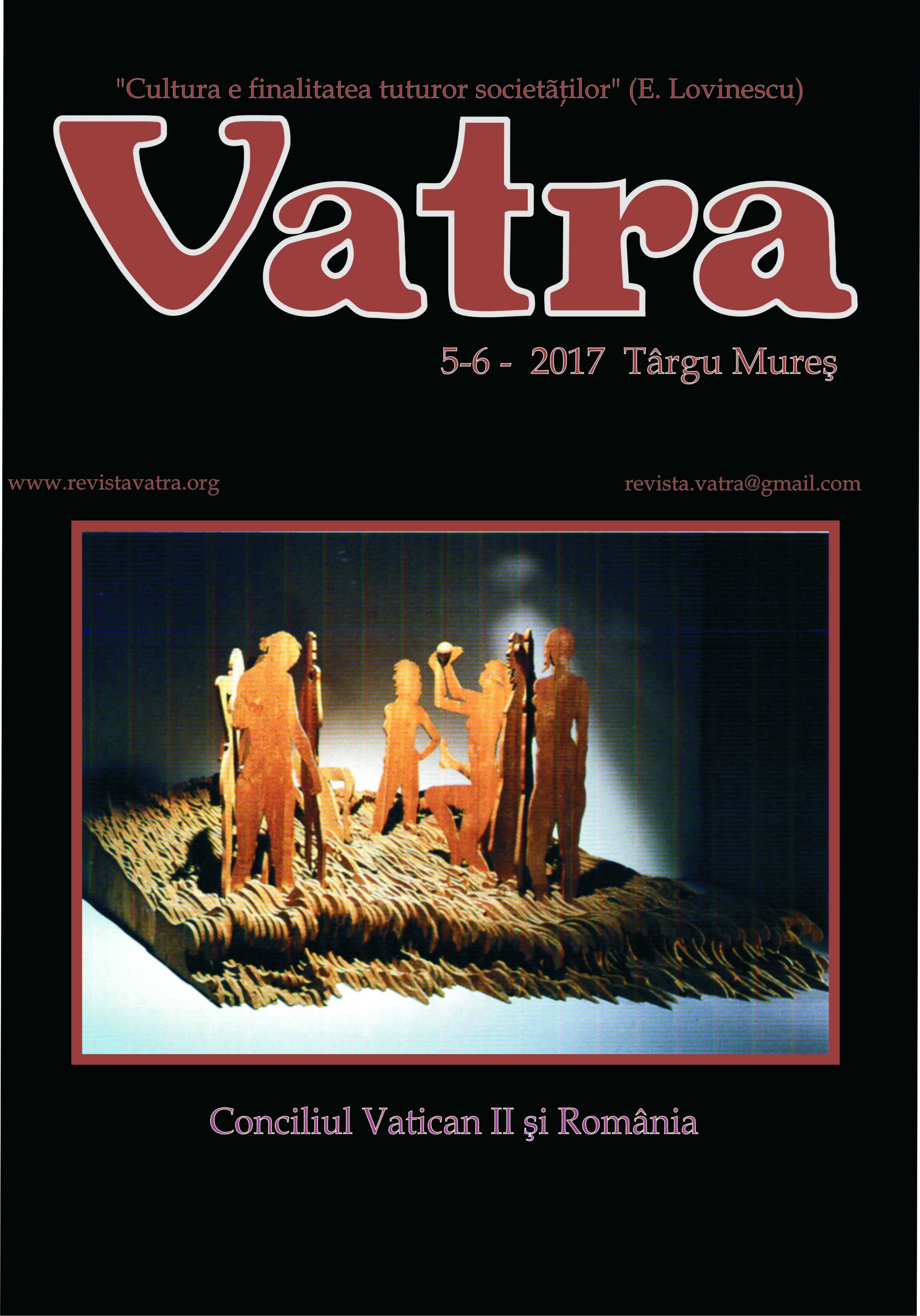
Keywords: Medio Monte; inauthentic life; ``the new man``; oppressive community; humorous literature;
Created like a little trilogy, made up from separately published books before – Casa din Piața Gorki/ The house from Gorki Market (1999), Vacek (2001) și Gravimetrul (2015) –, Marian Ilea`s volume of prose (2017) can be considered – not so much an erotic novel how the title could make us believe – a pleading for human imperfection in its many forms. In his novel are met all bad habits: from the lechery of the sidewalk ladies to The Prostitution House (Gorki Market) with legal documents, from perverse pleasures of young girls to clandestine relationships of respectable women by age, from abjects characters to The State Representatives`coruption, from the injustices of small entrepreneurs to big conflicts of interests and so on. A prose written in a satirical-humourous style.
More...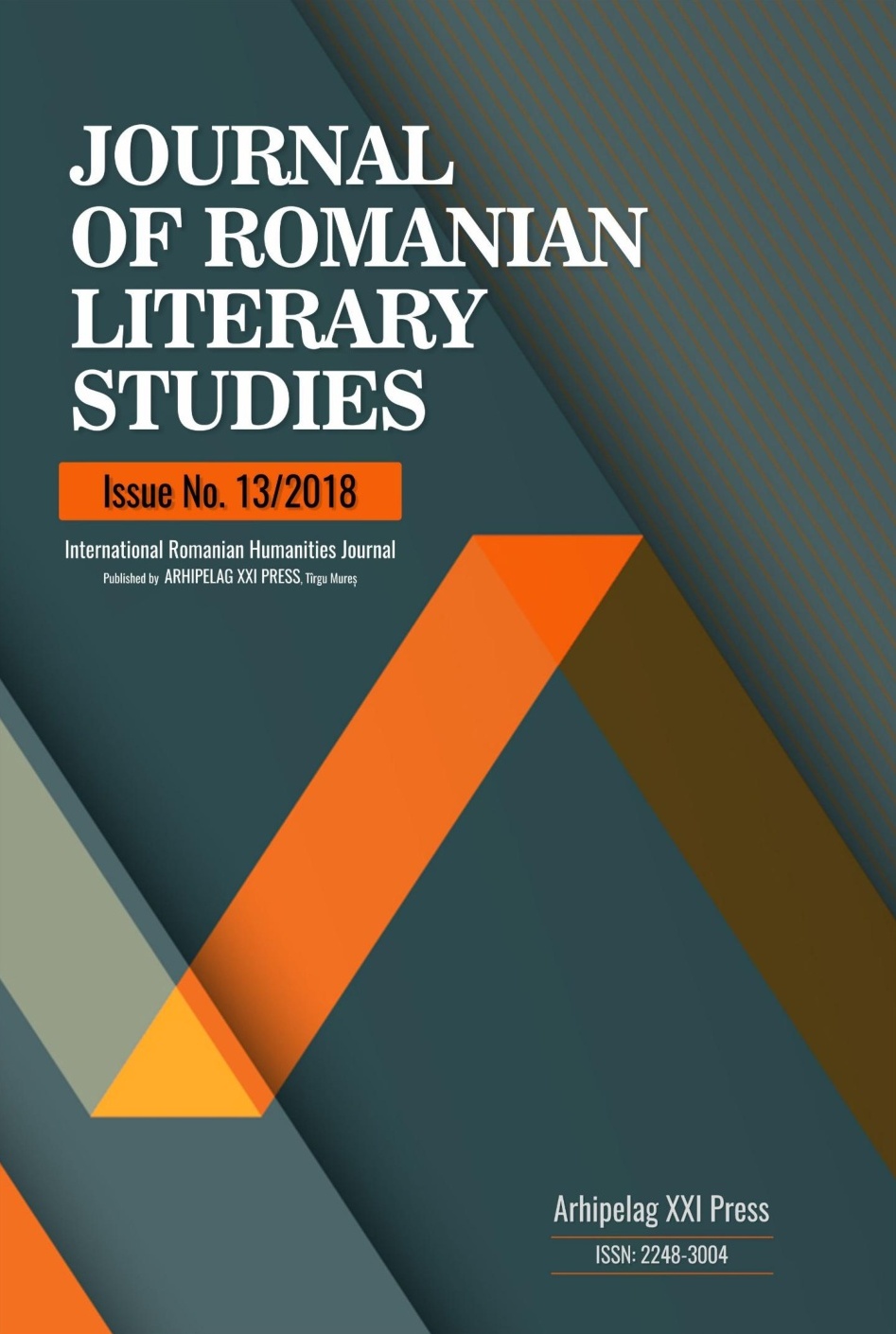
Keywords: "literary discourse"; "translingual writers"; "place"; "non-place" and "passage";
The perspective we propose is rooted in literary discourse, is based on the analysis of discourse and touches anthropology, without overemphasizing it. We will speak of a discursive identity which, in our view, is salient for a category of writers, at least, those called "translingues", or "from elsewhere", or "the exiles of language", foreign writers of French expression. Especially those who realized in their real life "a passage" from the country of origin to a French-speaking adoption country (France, Canada, Louisiana, etc.) Marc Augé's two concepts, "place and non-place" guide us in the construction of the corpus analysis grid to try to distinguish the francophone discursive identity.
More...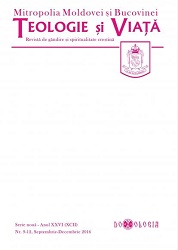
Keywords: faith; Orthodoxy; Islam; interreligious dialogue;
The interreligious dialogue is not a new theme in the history of Christianity, the possibility of its realization being analysed from the early centuries. Nowadays, the way that other religions are viewed has changed essentially, the religious, political, economic and social realities, being completely different than in the beginning. However, a correct handling of interreligious dialogue cannot disregard the past, more than that, the ideas from the works of the Holy Fathers, church writers, theologians and old thinkers remain valid and are used as themes in the current discussions of the interreligious dialog. Among them, an important place takes Cantemir, the Prince of Moldavia, who lived for a long time in Constantinople. His works, which deals with the history of the Ottoman Empire and the Islamic doctrine, have their basis in the personal experience and in the depth knowledge of the main Islamic sources that helped him to give to posterity the representative works for the knowledge of the Muslim religion and relations between Christianity and Islam during the development and decay of the Ottoman Empire. The way he presents the relation between Christianity and Islam, approaches him to the other Christian writers of his time which are addressing the same topic, highlighting the sadness of an era in which the great Christian empire fell under Ottoman rule and also the hopes of the Orthodox worldwide Christians to release the Christianity, having central the idea of approaching the apocalyptic time when Christianity will triumph.
More...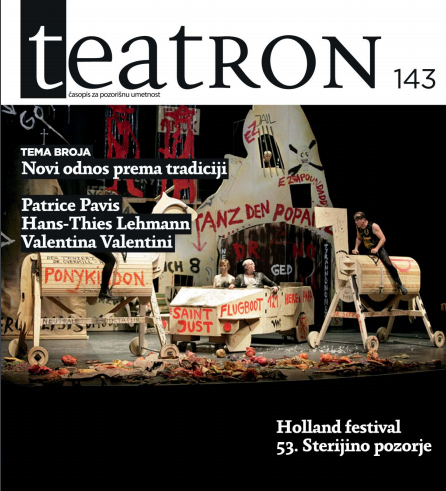
Keywords: La Commedia; Louis Andriessen; Hal Hartley;
Filmska opera Komedija (La Commedia) holandskog kompozitora Luja Andrisena (Louis Andriessen) i američkog filmskog reditelja Hala Hartlija (Hal Hartley) premijerno je izvedena u okviru Holandskog festivala 12. juna 2008. u kraljevskom teatru Kare u Amsterdamu. Delo je moguće, usled dekonstruktivističke „naravi“ nazvati „zastrašujućom operom dvadeset prvog veka“ (aludirajući na „zastrašujući orkestar dvadeset prvog veka“ koji je Andrisen, pružajuči otpor simfonizmu, želeo da oformi).
More...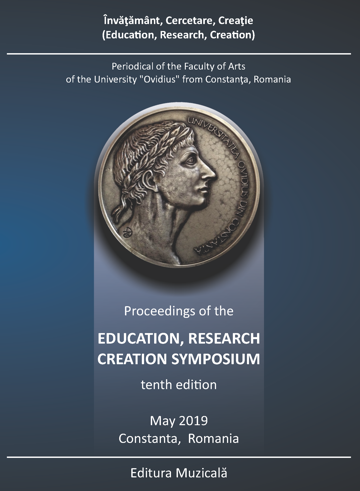
Keywords: tragédie; choeur; héros; chant; métrique;
Commençant avec les dytyrambes, quand le choeur était le personnage collectif du drame, et jusqu′à la Nouvelle Comédie, celui-ci est passé par des nombreuses transformations qui reflètent les changements produits dans la société grecque, mais aussi celles d′ordre esthétique. Dans la structure de la tragédie, l′alternance choeur/coryphée – héros, reflète la confrontation entre l′ancienne voix de la Grèce – la voix normative, celle des croyances et des coutumes ancestrales, qui montre à l′héros la voie à suivre – et la voix du personnage tragique qui assume son individualité. Les multiples aspects, le nuances infinies de la relation choeur/coryphée – héros et les sentiments qu′elles suscitent, sont finnement rendues par les effets expresives des alternances métriques qui génèrent la mélopée de la tragédie grecque. Nous présentons ici quelques hypostases de la relation choeur/coryphée – héros, reflétées par les divers types de chant de l′ancienne tragédie.
More...